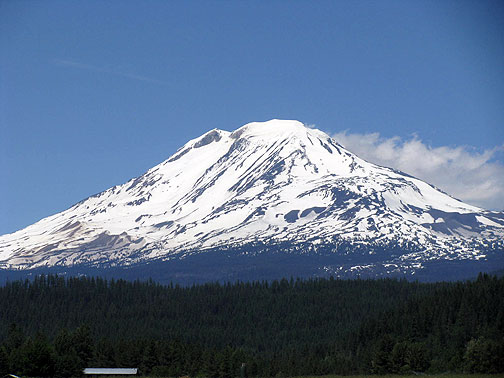Ahhh....spring. When a young man's fancy turns to thoughts of....volcano awareness. Right? The catastrophic eruptions of Mt. St. Helens 31 years ago are a reminder that Cascade volcaoes hold potential to disrupt our communities. Eruptions and lahars at Mt. St. Helens took the lives of 57 people and caused billions of dollars in property damage.
Here's a breakdown of our five active volcano neighbors.
Mt. Baker, located in Whatcom County erupted last in the mid-1880s. River valleys are prone to landslides and lahars. Small stream plumes near the summit are observed frequently.
Mt. Rainier, located in Pierce County, produced small eruptions in the 19th century. Numerous large landslides flowed down the volcano's flanks into river valleys over the past 6,000 years. More than 150,000 people live on lahar deposits in river valleys around the volcano.
Mt. St. Helens, is technically located in Skamania County. It is one of the most explosive and active volcanoes in the Cascades. The eruption on May 18th, 1980, was the most destructive volcanic eruption in U.S. history.
Mt. Adams, located in Yakima County, is referred to as the "quiet giant." Mt. Adams produces lava flows, and is also prone to large landslides and lahars in the river valleys to the south, west, and north.
How can you prepare?
- Get a NOAA Weather Radio
- Develop an emergency plan with your family. For tips on how to create a plan, visit the DEM website.
- Prepare for ashfall with goggles and dust masks for all family members.
- Follow authorities' instructions.
- Text Follow CRESA to the number 40404 to get emergency information by text on your cell-phone.
- Make sure your cell-phone is registered to receive Emergency Community Notification System messages (landlines are automatically in the system). You can sign up by clicking the "Alert Clark County" icon to your right along the side of the blog or via website http://www.cresa911.org/be-informed/





No comments:
Post a Comment